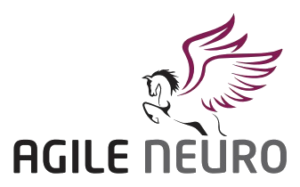
I have been writing a lot about Neuro-Linguistic Programming (NLP), Emotional Intelligence and such Psychology-based topics. I haven’t written much about Coaching and Mentoring which I have been practising for a long time now. I do use a lot of NLP while Coaching. I think learning NLP helps in a great way to Coach effectively. Very frequently, I have been asked the question of what is Coaching and how to be a great Coach. So, let me start with the definition of Coaching. Of course, there are various versions of this definition and I do respect everyone’s point of view.
Coaching is all about enabling the Coachee to find a self-articulated positive solution for a challenge, which is self-initiated, self-maintained and which perfectly makes sense to the overall ecology of the Coachee. The Coach is a Facilitator in this entire process, asking relevant questions, helping Coachee to join the dots. This is done by giving the necessary nudge, push to the Coachee towards the solution end. The important presupposition in this entire process is, the person facing any problem or challenge/s also has the solution to the problem. It is just matter of facilitating the ‘aha’ moment for the Coachee when the entire ‘Solution-Roadmap’ starts making sense. We all have resources within us to achieve the outcomes we want. The Coach’s role is to help the Coachee get access to the resources. We are talking about internal resources at this point. I guess, if you have understood the definition of Coaching and to the core of it, you may just start Coaching from today. Well, sometimes it is not that easy. Which is why, I am listing points below to ensure that you won’t become a bad Coach. Sometimes, in order to be a good Coach, you need to know what is a ‘Bad Coach’.
- Trying too hard to be a Great Coach: I would like to ask you, what is your aim of Coaching? To help the Coachee realize and achieve his/her own solution. This Solution comes from the Coachee’s model of the world and s/he realizes it by joining the dots on his own based on the powerful and meaningful questions you ask. So, keeping this condition that you have to be a great Coach will add pressure. Don’t let that create interference in your mind while Coaching. Go with the flow. All Great Coaches were bad Coaches at one point in time. It takes time to achieve excellence in anything and there is no short-cut. So, first of all, don’t project yourself as a great Coach. If you wear that mask, you will have to live up to it and if you are just beginning your Coaching career, that is a tough ask.
- Not asking the Thinking based questions: Ask relevant, solution based questions based on the Coachee’s reflection of his current map of thinking. Why would the Coachee think that way? Why does s/he have the limiting belief/s? Because most of the time, someone who has a problem which s/he can’t solve is due to Limiting Beliefs. How can I loosen his/her model of thinking to enable solution oriented thoughts. Sounds very simple and sometimes it is. It becomes simple when you focus on the client’s thinking and not on the problem. The problem solves itself when the client changes the thinking. A very simple example is a Coachee saying, “I can’t swim”. You see, that is the problem for the Coachee. For you, his thinking should be the problem. How about saying, “Is there anything you had believed in your life you couldn’t do, but you surprised yourself one day by actually being successful in it”? And there are tonnes of things Coachees will come up with. Then you reflect on the ‘old’ problem of not being able to swim. The Coachee realizes right away that it is a belief’s problem. Aha moment, isn’t it?
- Not saying what needs to be said: The effectiveness of any form of Coaching, be it Life Coaching, Executive Coaching or even Mentoring for instance, depends upon if the Coachee is definitely sure of what s/he would like to achieve and what is stopping him/her from achieving it. As a part of the first session of Coaching, we ask the Coachee to formulate the statement, “I would like to Achieve ____, and what is stopping me is _____”. It could happen that Coachees are unclear about what they would like to achieve. Mostly everyone knows what is troubling them. Clarity of what they would like to achieve is mostly blurred. Also, there could be multiple dimensions of what is troubling the Coachees which is probably out of their consciousness. For example, sometimes parents are angry because the child is not studying. But what is out of their consciousness is the fact that they are ‘worried’ about the child’s progress. Anger is just the surface structure. Such parents come to me saying they have anger issues. Well, not necessarily! Also, in case of any ambiguity, it is always good to clarify with the Coachee if that is what s/he meant.Confusion can really take the Coaching session to a point of no return. At times, Coachees are emotionally disturbed and they could express extreme thoughts. Coaches need to be aware of what they need to do. A good way of dealing with this is by saying, “Ending your life might be an option, but I know for sure that it will not help anyone. So, let us keep that aside for a while”. Some things need to be dealt with right away.
- Neglecting to ask the Coachee how you (the Coach) can be helpful: This is very important right at the start before you actually go into the thick part of Coaching. The Coachee needs to know that you are going to help him/her join the dots by asking some powerful Coaching Questions. If the Coachee is looking at easy solutions from another person, he would rather go to a Consultant and not the Coach. The Consultant, however, while giving solutions, doesn’t think too much about the ecology of the Coachee because s/he is operating from his model of the world. This is where a Coach ensures the solution-focused approach along with ensuring mental and physical safety of the Coachee and the surroundings. Sometimes, it is good ask how you could help because that also could help in qualifying a problem as a problem. It also makes it clear for the Coach about the Coachee’s expectations from the Coach while dealing with challenges. Asking this question, in a way puts the Coachee in the Solution zone covertly. The Coachee would probably tell you the solution while answering this question.
- Assuming the person being coached is a challenge to overcome or a problem to be fixed: Please understand this well. Who is facing the challenge? It is a Coachee. If you start thinking as a Coach that getting the Coach to solve the issues is your challenge, you are probably in a bigger challenge than the Coachee. What you need to keep doing all along is follow the Coaching structure and if you do that religiously, you will arrive at a great result. Asking Powerful Coaching questions, pushing the Coachee to solution end by helping him/her join the dots is the only job at hand. Now, I am sure you have a question, what is the Coaching structure. That is coming in the next point.
- Not following the Coaching Structure: So here is a basic Coaching Structure which you can follow irrespective of who you are Coaching or the nature of the Coaching (Life-Coaching, Executive Coaching Etc.). The points given below are of course the surface structure of Coaching. There is a lot of detailing which goes into this including documentation:
- Checking with Coachee if this a good time to discuss and how much time you have at hand for this session
- Ensuring that Coachee knows that everything s/he discusses with you will be kept confidential and s/he can be totally relaxed to express
- Ask what is the Coachee’s challenge which s/he is facing. This is where the Coachee is asked to form a statement related to the solution, “I would like to achieve ___________ and what is stopping me is ___________”. This helps in arriving at the specifics of the challenge.
- Ask what would s/he like to achieve from current discussion
- Make the Coachee’s Vision strong by asking what would result after s/he has overcome the challenge. A lot of time and effort should be dedicated to this part to make the Coachee feel compelled to achieve the Outcome
- Ask powerful questions related to how the Coachee can move towards achieving the outcome. Elicit various options which the Coach has to move
towards the Goal. - Ask detailing questions of what needs to be done step by step to develop a complete roadmap.
- End the session with a good summary of what needs to be done and what the Coachee would do before the next Coaching Session.
- Talking too much: The success mantra in Coaching is to let the Coachee speak and that helps him/her in joining the dots. Sometimes, expressing your challenge helps in coming up with solutions. Bad Coaches do a lot of talking and the Coachee is left lost. It is not about you, it is about them.
- Giving Advice: Again, you aren’t the Consultant or a Trainer. You are a Coach facilitating the entire solution-based journey for the Coachee.
- Steering the conversation towards what you think is a best solution for the Coachee: In legal terms, this is called asking ‘leading questions’. Questions like, “You do want to start a business to achieve peace of mind don’t you” is an example of pushing the Coachee towards something which s/he might not be thinking about. First of all, it is a closed ended question which also should be avoided. We don’t want a Yes/No answer from the Coachee, we want more of his/her perspective.
- Finishing without a commitment: The Coachee needs to commit to you about the action s/he would take before the next session. Without this, the Coachee is not going to move.
Of course, it is recommended that you learn about Coaching inside-out before starting to Coach. At the same time, you also need to keep these points in mind because these are simple and obvious mistakes which could turn a Coaching session into a disaster. No blog can do justice to the entire world of Coaching. Hence feel free to reach to me for your specific questions. I hope I have been able to add some value to your Coaching arsenal.









